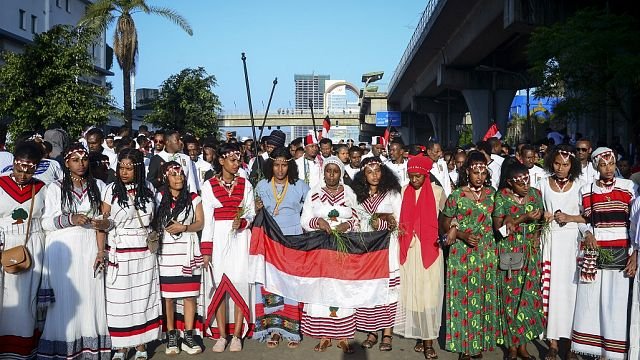Ethiopia
Tens of thousands of Ethiopians, predominantly from the Oromo ethnic group, gathered in the capital Saturday for the vibrant Irreecha festival, a thanksgiving celebration that this year underscored a complex mix of cultural resurgence, political symbolism, and lingering community grievances.
Dressed in traditional white attire, participants gathered to express gratitude to God, known as Waaqa, marking one of the most significant events in the Oromo calendar.
The festival, which also promotes peace and unity, includes the traditional practice of Waaqqeffannaa.
For the Oromo, who comprise about a third of Ethiopia’s population, Irreecha is a powerful assertion of an identity they say was suppressed for over a century.
A shadow of the past
The joyous occasion was held under heightened security, a sobering reminder of the 2016 festival that turned tragic.
That year, the event became a protest against the federal government, culminating in clashes with security forces and a deadly stampede that killed over 50 people.
The tragedy became a catalyst for political upheaval, ultimately paving the way for the rise of Abiy Ahmed, Ethiopia’s first Oromo prime minister.
Empowerment and escalating criticism
Prime Minister Abiy, who hails from the Oromia region, addressed the crowd, linking the festival to national achievements like the Grand Renaissance Dam.
For many, his leadership has fostered a renewed sense of empowerment to publicly celebrate their heritage.
However, this cultural revival exists alongside growing dissent.
Despite his Oromo heritage, Abiy faces increasing criticism from within the community, with many contending he has not done enough to address their specific political and economic interests, highlighting the ongoing tensions beneath the surface of a unified national celebration.
Related articles
From the same country






